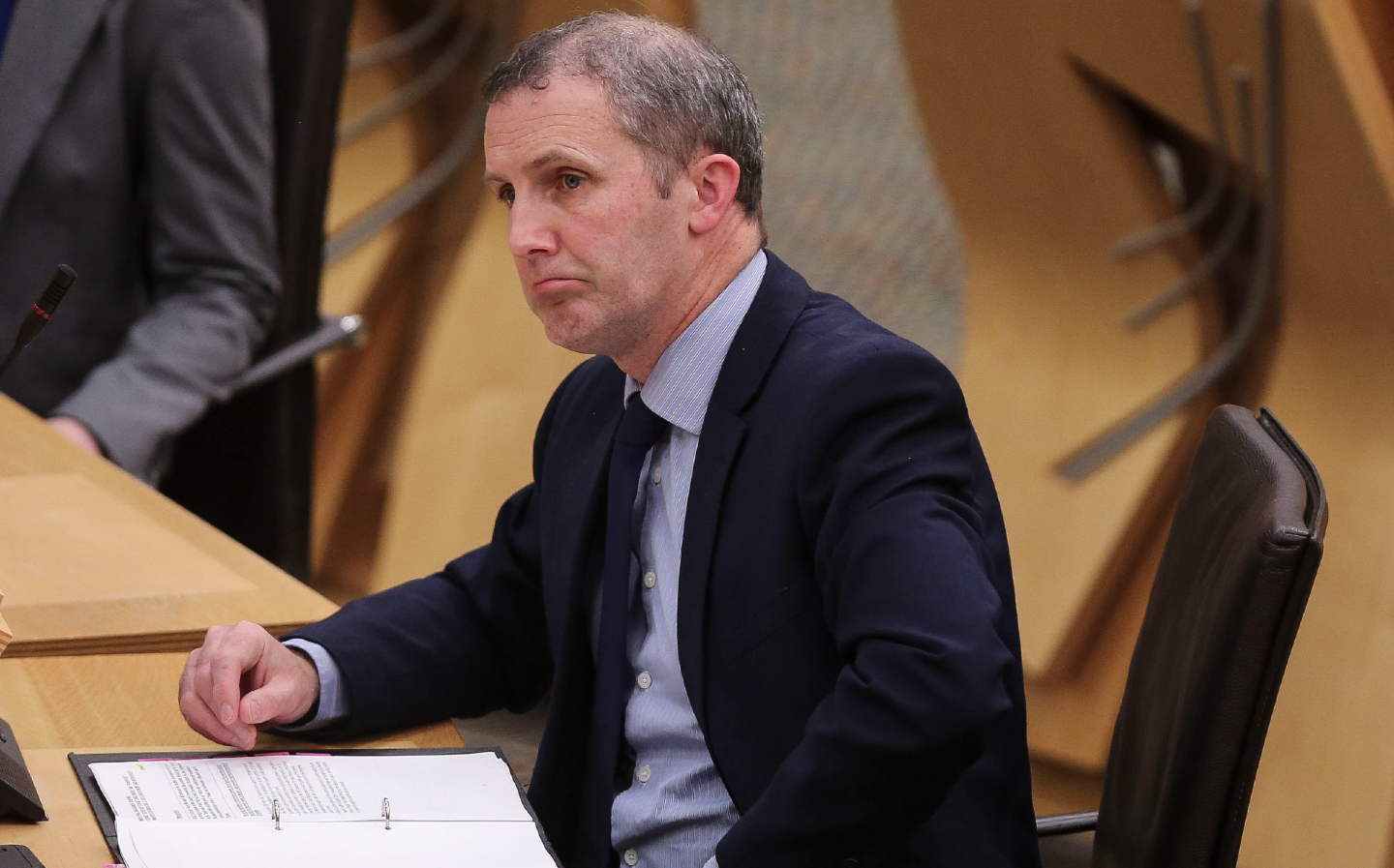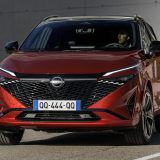Holyrood blames typo for erroneous information about Scottish petrol and diesel ban delay
Scotland still in line with UK 2030 date
The Scottish government’s planned ban on the sale of new petrol and diesel cars by 2030 has not been pushed back to 2032 despite draft documents of its new energy strategy suggesting otherwise.
Holyrood’s updated strategy was unveiled yesterday (January 11) by the Scottish energy secretary, Michael Matheson (pictured), with accompanying documents published online mistakenly stating that the country’s proposed ban on the sale of petrol and diesel vehicles by 2030 had been reset to two years later than the rest of the UK.
Government officials have since clarified, however, that this was as a result of a typing error rather than a major shift in policy and that the 2030 deadline remained in place.
“Some of the text of the draft ESJTP [Energy Strategy and Just Transition Plan] contained an incorrect reference to phase out dates for petrol and diesel cars and vans,“ the government said in a follow-up statement.
“The wording has been reviewed and revised as necessary to reflect the correct commitment to phase out the need for new petrol and diesel cars and vans by 2030, rather than 2032.”
The 2018 version of the Scottish government’s energy strategy did specify an end date of 2032 for the sale of new petrol and diesel cars, but in 2020 this was move forward to 2030.
2030 petrol and diesel car ban: 12 things you need to know
The whole of the UK is scheduled to ban the sale of new petrol and diesel cars from 2030, with even long-range plug-in hybrid models set to be gone from the market by 2035.
With the European Union planning to end the sale of combustion-powered cars by 2035, the UK’s targets are particularly ambitious and Michael Matheson expressed concern about the state of public charging infrastructure in the UK as well as the rising cost of energy.
While the number of public EV charging points across the UK increased by a seemingly healthy 31% between December 2021 and December 2022, recent queues at EV charging stations have underscored the fact that the UK’s public charging infrastructure isn’t yet sufficiently reliable to meet widespread demand for EVs at peak times.
The cost of energy has soared in the past year due to a range of factors including the wider economic fallout from the war in Ukraine, with the average cost of public EV charging rising by some 58% since last May.
Recent reports suggest that, due to the cost-of-living crisis, high purchase price and the rising cost of charging, the growth rate in public demand for EVs may have fallen away somewhat despite a record month for pure-electric cars in December.
British and European car manufacturers may be scaling back EV production in favour of petrol, diesel and hybrid models according to the UK’s Advanced Propulsion Centre.
The Scottish government’s latest draft energy strategy, rather than containing any major changes for motorists, is primarily aimed at decarbonising the Scottish economy as well as providing a “just transition”, particularly for the thousands of workers involved in the offshore gas and oil industry.
The government’s energy proposals also included plans to significantly ramp up renewable energy production in Scotland, opposition to the granting of new oil and gas exploration licences in the North Sea, the aim of decarbonising the heating of one million homes by 2030 and a renewed resolution to avoid nuclear power.
Related articles
- After reading about the Scottish ban on petrol and diesel cars, you may be interested to read about falling values for used Teslas
- Keen to go electric? Here are the top 10 longest-range electric cars
- Check out the best-selling cars of 2022
Latest articles
- Omoda 5 prototype review: Bargain family SUV is solid first effort for new Chinese brand
- Dacia Duster 2024 review: Rugged, affordable SUV modernised with electrification and quite the glow up
- Audi A3 Sportback 2024 review: Softly, softly, catchy premium hatchback buyer
- New electric-only Mini Aceman fills gap between Mini Cooper hatch and Countryman SUV
- Tesla driver arrested on homicide charges after killing motorcyclist while using Autopilot
- Porsche Macan 2024 review: Sporty compact SUV goes electric, but is it still the class leader for handling?
- F1 2024 calendar and race reports: What time the next grand prix starts and what happened in the previous rounds
- Aston Martin DBX SUV gets the interior — and touchscreen — it always deserved
- Nissan unveils bold look for updated Qashqai, still made in UK














